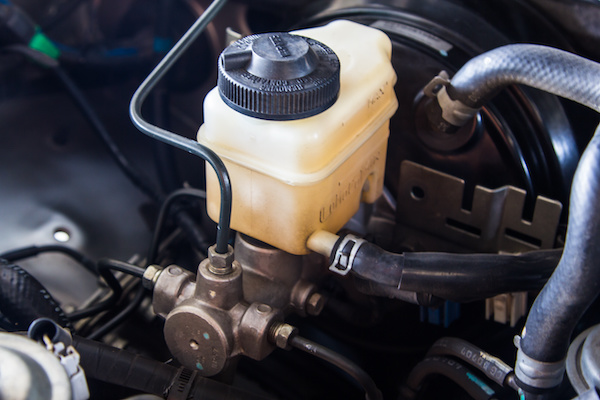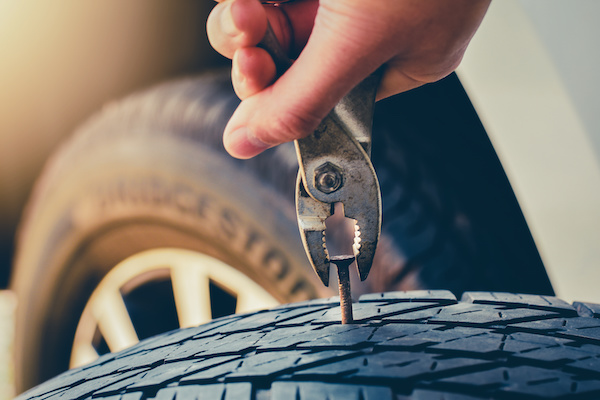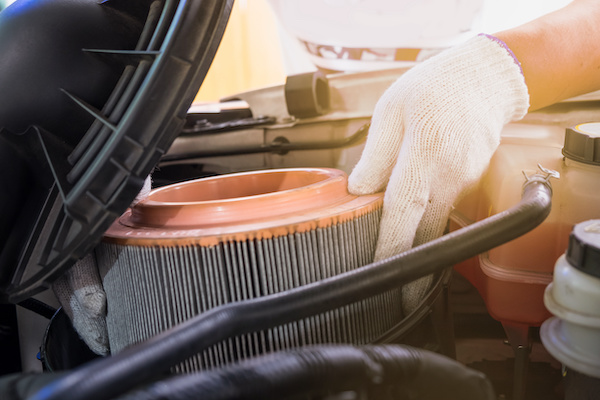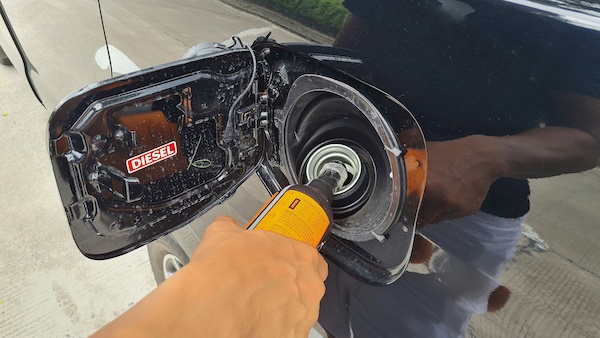Posted on 7/31/2023

Many car owners know that they should check their brakes. Fewer know how important brake fluid is to the performance of their braking system and their safety. Therefore, flushing and replacing brake fluid when necessary is a crucial aspect of car maintenance. The following are signs you need to flush or replace your brake fluid: Bouncy or Spongy Brake Pedal When you have fresh brake fluid, you should be able to evenly press the brake pedal to the floor. If it feels soft or bouncy, it may be a sign that you need new brake fluid. Low brake fluid causes air gaps in the brake line hence the spongy brake pedal. If you have to pump the brakes several times to stop the car before it stops, replace your brake fluid. Poor Braking Performance A vehicle's brakes should be fast and responsive, which helps you avoid accidents. If the brakes are slow and unresponsive, it is often a sign to get the brakes checked and probably flush the braking fluid. There could be other causes of the probl ... read more
Posted on 6/30/2023

Discovering a nail in your tire can be an unwelcome surprise, but knowing how to handle the situation can help prevent further damage and ensure your safety on the road. In this article, we will guide you through the steps to take if you find a nail in your tire. 1. Assess the Damage If you spot a nail in your tire, avoid removing it immediately. Instead, visually inspect the tire to determine if it has caused a puncture. Look for any visible signs of deflation or if the nail has penetrated the tire. 2. Check Tire Pressure Use a tire pressure gauge to check the air pressure in the affected tire. If the pressure is significantly lower than the recommended level, it may indicate a puncture. 3. Avoid Driving If the tire pressure is low or there is visible damage, it's crucial to avoid driving on the tire. Continuing to drive can cause further harm and potentially result in a blowout. 4. Consult a Professional Contact a reputable auto repair shop or tire service center to seek ... read more
Posted on 5/30/2023

When you hear the term "tune-up," what comes to mind? For many car enthusiasts, it may evoke images of the past—a time when mechanics would tinker under the hood, adjusting carburetors and such. However, the concept of a tune-up has evolved significantly. If you're wondering what a tune-up means in the modern era, keep on reading. With advancements in technology and the complexity of modern vehicles, the tune-up now encompasses a broader range of services designed to optimize your vehicle's performance, fuel efficiency, and overall reliability. Let's delve into what a tune-up entails:Diagnostic Inspection: A thorough diagnostic inspection serves as the foundation of a modern tune-up. Our skilled technicians use state-of-the-art equipment to assess your vehicle's systems and identify any underlying issues. This includes scanning the onboard computer for error codes and conducting a comprehensive visual inspection of v ... read more
Posted on 4/28/2023

Diesel vehicles are known for their power and efficiency, but they require regular maintenance to perform at their best. One common question that diesel vehicle owners have is whether they need to use fuel additives. Read on to learn more about what fuel additives are, what they offer, and whether they are worth investing in. Firstly, What Are Fuel Additives? Fuel additives are chemicals that are added to fuel to enhance its performance. They can come in many forms, including liquids, powders, and capsules. Fuel additives can have various advantages, such as improving fuel efficiency, reducing emissions, and preventing engine damage. Do Diesel Vehicles Need Fuel Additives? The answer is it depends. While diesel fuel already contains additives, such as detergents and lubricants, additional additives can further assist diesel engines. For example, diesel fuel can be prone to moisture buildup, which can cause corrosion and other issues. Fuel additives that contain wat ... read more
Posted on 3/30/2023

German auto manufacturers are known for their engineering expertise and attention to detail. It's no surprise that they have been at the forefront of developing hybrid cars, which combine their innovative technology and luxury designs with fuel efficiency. Here are some of the most popular hybrid cars produced by European brands. BMW i3 - The BMW i3 is a compact electric car that has been praised for its futuristic design and impressive range. It also comes in a hybrid version, which uses a small gas engine to generate electricity and extend the range. This car is ideal for city driving, with a range of up to 200 miles on a single charge. Volkswagen Golf GTE - The Volkswagen Golf has been a popular car for many years, and the GTE version adds a hybrid engine to the mix. This car is sporty and fun to drive, with a combined power output of 204 horsepower. It also has a range of up to 50 miles on electric power alone, making it perfect for short com ... read more